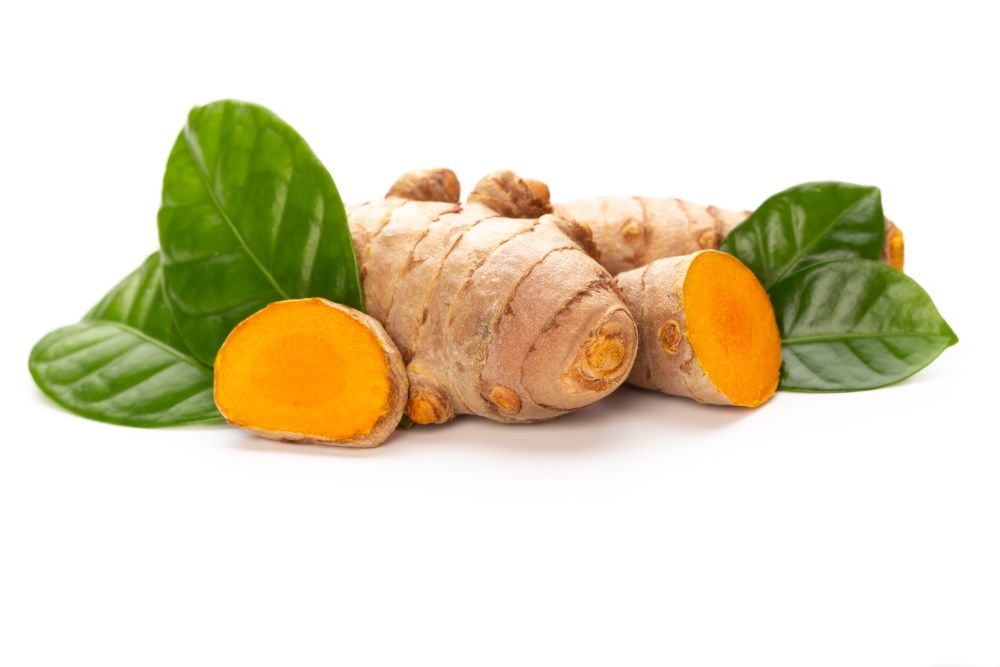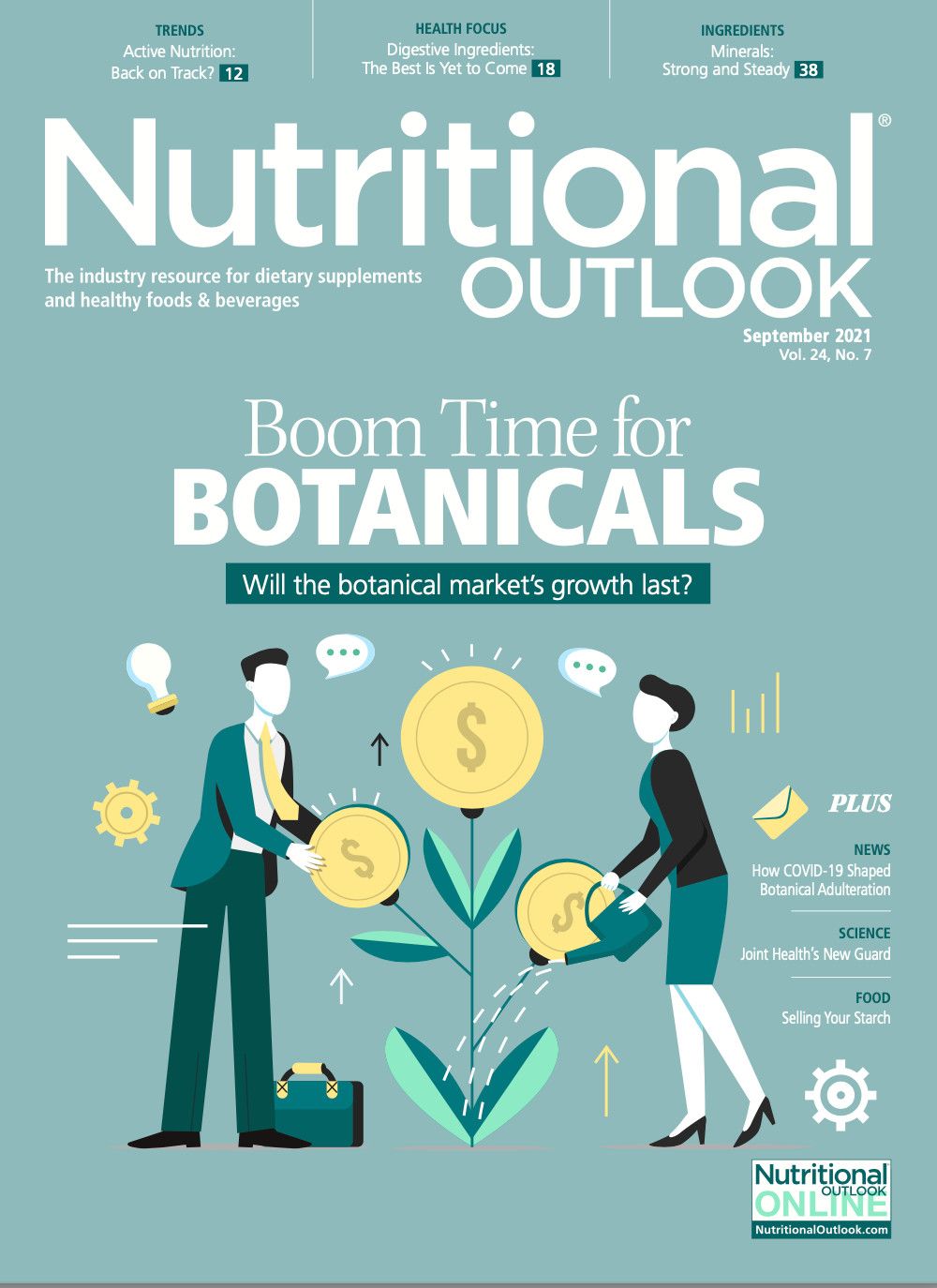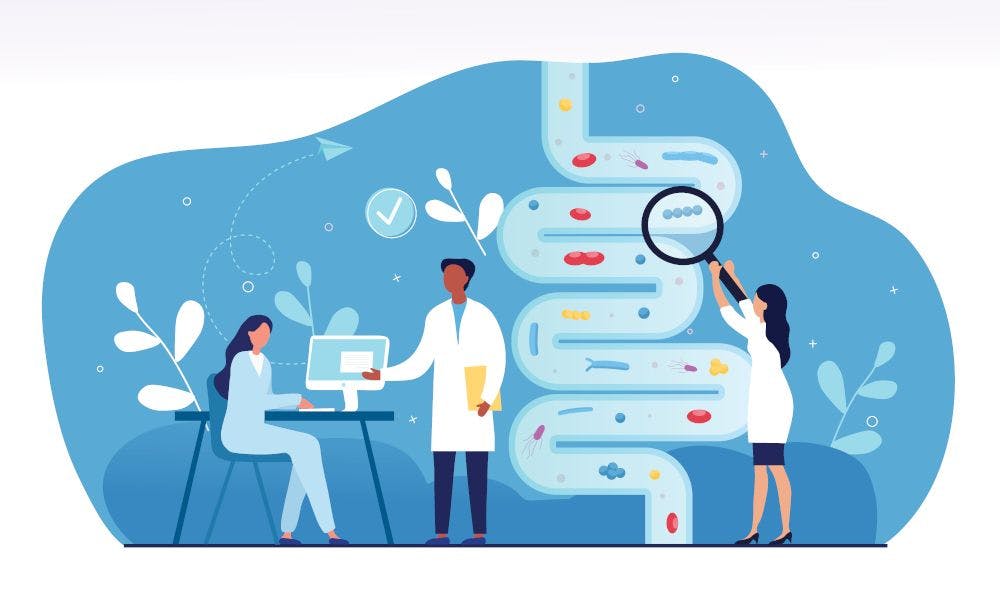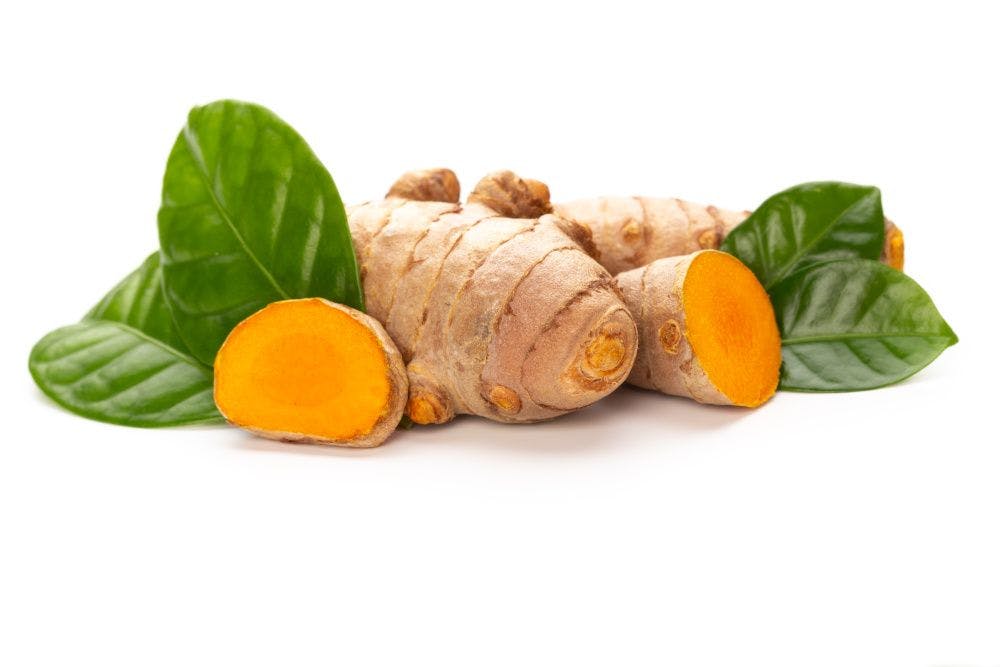Curcumin as a stress and sleep management supplement
One of curcumin’s lesser-known benefits is its effects on stress/anxiety and sleep.
Photo © Gitusik - Stock.adobe.com

Turmeric—or more specifically its primary bioactive compound, curcumin—is one of the most popular nutraceuticals in use today. In fact, a report1 by Grand View Research predicted that the global curcumin market will reach $94.3 million by 2022. This is consistent with a more recent report from Global Market Insights2, whose data predicts the global curcumin market will exceed $145 million by 2027.
Why is curcumin so popular? Like vitamin D, curcumin is one of those nutraceuticals for which research suggests a broad range of potential benefits. Likewise, turmeric has been used as a traditional remedy in Chinese and Indian Ayurvedic medicine for over 2,000 years3, and the authors of a textbook on bioactive foods indicate that “the use of turmeric in Indian folk medicine is one of a veritable panacea, apparently efficacious for conditions that we would nowadays classify in the realm of infectious, inflammatory, metabolic, and immunological diseases.”4
One of curcumin’s lesser-known benefits is its effects on stress/anxiety and sleep.
Serotonin
How can curcumin help manage stress/anxiety and sleep? The answer is serotonin. Serotonin is a neurotransmitter that stabilizes our mood, feelings of well-being, and happiness. This neurotransmitter also helps with sleeping, eating, and digestion.
As it turns out, in animal research, curcumin supplementation was found to increase serotonin levels.5 In one study6, chronically stressed rats were supplemented with curcumin. Curcumin significantly prevented the stress-induced decrease in serotonin, helping to overcome stress-induced behavioral abnormalities. In another rat study, curcumin supplementation helped restore serotonin balance when alcohol consumption had adversely affected it.7
Stress/Anxiety
Chronic exposure to stress is a well-known risk factor for the development of mood and anxiety disorders. Researchers tested8 the efficacy of curcumin in promoting resilience to chronic social stress in mice. The curcumin administration produced a 4.5-fold increase in stress resilience in the majority of mice. These mice also released less corticosterone (a stress hormone) following acute restraint stress, and had lower levels of peripheral IL-6 (an inflammatory compound). Curcumin also prevented anxiety-like behavior.
The effects of curcumin (1 g/day) or placebo were also tested on the frequency of symptoms of anxiety and depression in 30 obese human subjects in a 30-day, double-blind, crossover trial.9 Severity of anxiety and depression was assessed at baseline and at weeks 4, 6, and 10 of the trial using the Beck Anxiety Inventory and Beck Depression Inventory, both scientifically validated assessment questionnaires. Results showed that anxiety scores were significantly reduced following curcumin therapy (P=0.03).
Similar results were seen in other research, including studies on:
- 80 mg of nano-curcumin showing effectiveness in reducing depression and anxiety scores in patients with diabetic polyneuropathy10
- 500-1000 mg of curcumin and combined curcumin/saffron showing effectiveness in reducing depression and anxiety symptoms in people with major depressive disorder11
- 1 g of curcumin showing anti-anxiety effect in individuals with obesity12
- 1000 mg of curcumin plus 10 mg of piperine demonstrating significantly greater reduced anxiety and depression symptoms as an add-on to standard medication in patients with major depressive disorder13
Sleep
A randomized, double-blind, placebo-controlled trial14 was conducted to ascertain the effects of 1000 mg/day curcumin or placebo on quality of life (QoL) in 58 patients aged 20-70 years with liver cirrhosis. Compared with baseline, overall QoL scores improved considerably (P < 0.05) after curcumin administration. Furthermore, curcumin helped significantly reduce (P < 0.05) the following: sleeping during the day, decreased sexual interest, and decreased sexual activity.
Another study15 was conducted to examine the effect of turmeric supplementation on quality of life (QoL) and hematological parameters in 60 breast cancer patients on chemotherapy. Turmeric supplementation for 21 days resulted in clinically relevant and statistically significant improvement in global health status symptom scores, including fatigue and insomnia.
Conclusion
Although known mostly for its anti-inflammatory effects, curcumin clearly has value for positively impacting stress/anxiety and sleep due at least in part to its ability to increase serotonin levels.
Gene Bruno, MS, MHS, RH (AHG) possesses 42 years of dietary supplement industry experience. With a master’s degree in nutrition and a second master’s degree in herbal medicine, he has a proven track record of formulating innovative, evidence-based dietary supplements. Bruno currently serves as both the vice president of scientific and regulatory affairs at NutraScience Labs (Farmingdale, NY) and professor of nutraceutical science at Huntington University of Health Sciences (Knoxville, TN).
References
- PR Newswire press release. “Curcumin Market Is Anticipated to Grow to $94.3 Million By 2022: Grand View Research, Inc.” Published June 22, 2015.
- Global Market Insights report. “Curcumin Market Size to Exceed $145 Mn by 2027.” Published July 14, 2021.
- “Curcuma longa (turmeric). Monograph.” Alternative Medicine Review, supplement 6 (September 2001): S62-S66
- Togni S, Appendino G. “Curcumin and Joint Health: From Traditional Knowledge to Clinical Validation.” Bioactive Food as Dietary Interventions for Arthritis and Related Inflammatory Diseases; edited by Watson RR, Preedy VR; Academic Press; 2013: 67-81
- Kulkarni SK et al. “Antidepressant activity of curcumin: Involvement of serotonin and dopamine system.” Psychopharmacology (Berl), vol. 201, no. 3 (December 2008): 435-342
- Xu Y et al. “Curcumin reverses impaired hippocampal neurogenesis and increases serotonin receptor 1A mRNA and brain-derived neurotrophic factor expression in chronically stressed rats.” Brain Research. Published online June 21, 2007.
- Jagota A et al. “The effect of curcumin on ethanol induced changes in suprachiasmatic nucleus (SCN) and pineal.” Cellular and Molecular Neurobiology, vol. 27, no. 8 (December 2007): 997-1006
- Aubry AV et al. “A diet enriched with curcumin promotes resilience to chronic social defeat stress.” Neuropsychopharmacology, vol. 44, no. 4 (March 2019):733-742
- Esmaily H et al. “An investigation of the effects of curcumin on anxiety and depression in obese individuals: A randomized controlled trial.” Chinese Journal of Integrative Medicine. Published online March 17, 2015.
- Asadi S et al. “Beneficial effects of nano-curcumin supplement on depression and anxiety in diabetic patients with peripheral neuropathy: A randomized, double-blind, placebo-controlled clinical trial.” Phytotherapy Research, vol. 34, no. 4 (April 2020): 896-903
- Lopresti AL et al. “Efficacy of curcumin, and a saffron/curcumin combination for the treatment of major depression: A randomised, double-blind, placebo-controlled study.” Journal of Affective Disorders, vol. 207 (January 1, 2017): 188-196
- Esmaily H et al. “An investigation of the effects of curcumin on anxiety and depression in obese individuals: A randomized controlled trial.” Chinese Journal of Integrative Medicine, vol. 21, no. 5 (May 2015): 332-338
- Panahi Y et al. “Investigation of the efficacy of adjunctive therapy with bioavailability-boosted curcuminoids in major depressive disorder.” Phytotherapy Research, vol. 29, no. 1 (January 2015): 17-21
- Nouri-Vaskeh M et al. “Curcumin ameliorates health-related quality of life in patients with liver cirrhosis: A randomized, double-blind placebo-controlled trial.” Complementary Therapies in Medicine. Published online February 19, 2020.
- Kalluru H et al. “Turmeric supplementation improves the quality of life and hematological parameters in breast cancer patients on paclitaxel chemotherapy: A case series.” Complementary Therapies in Clinical Practice. Published online October 13, 2020.


.png&w=3840&q=75)

.png&w=3840&q=75)



.png&w=3840&q=75)



.png&w=3840&q=75)





















